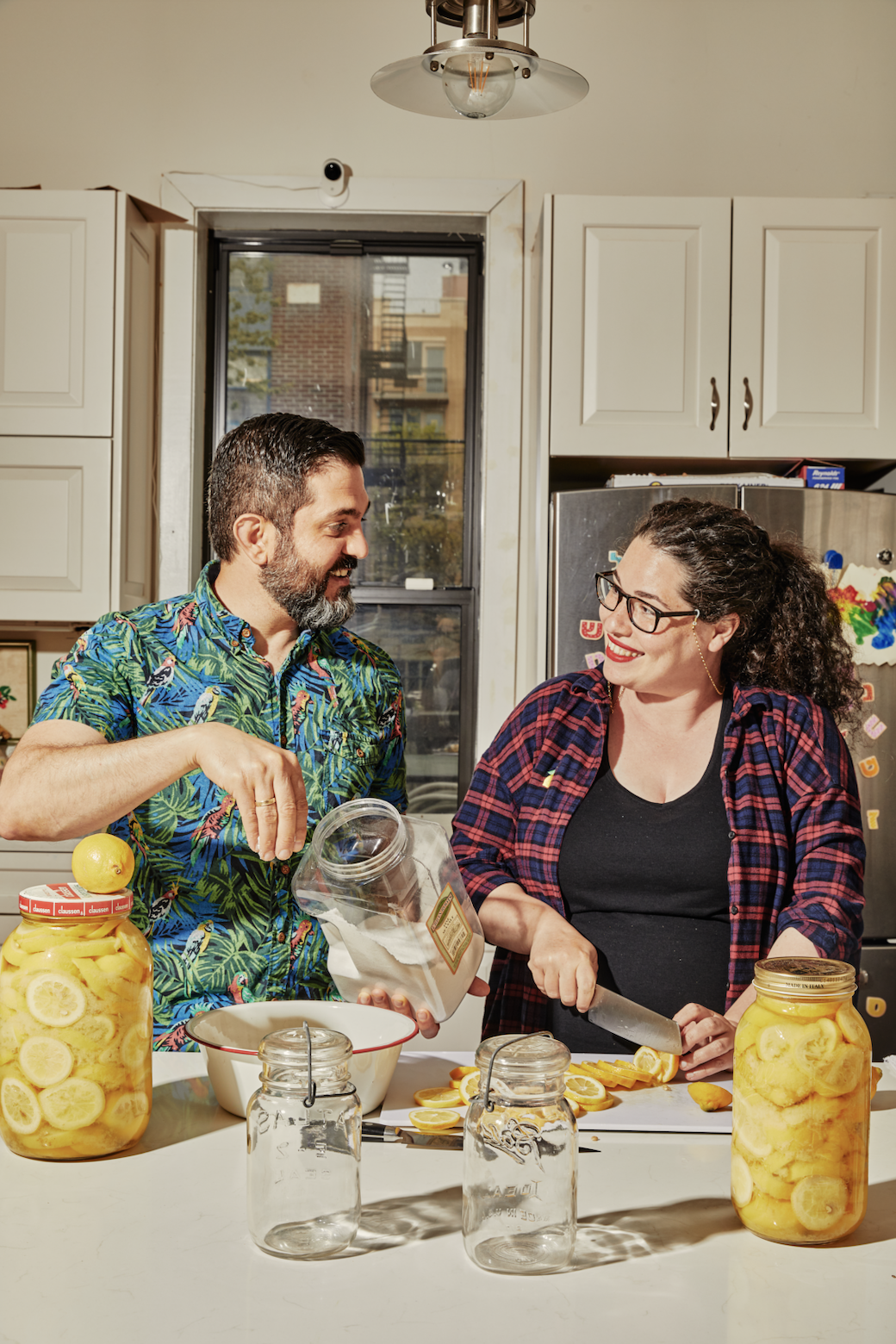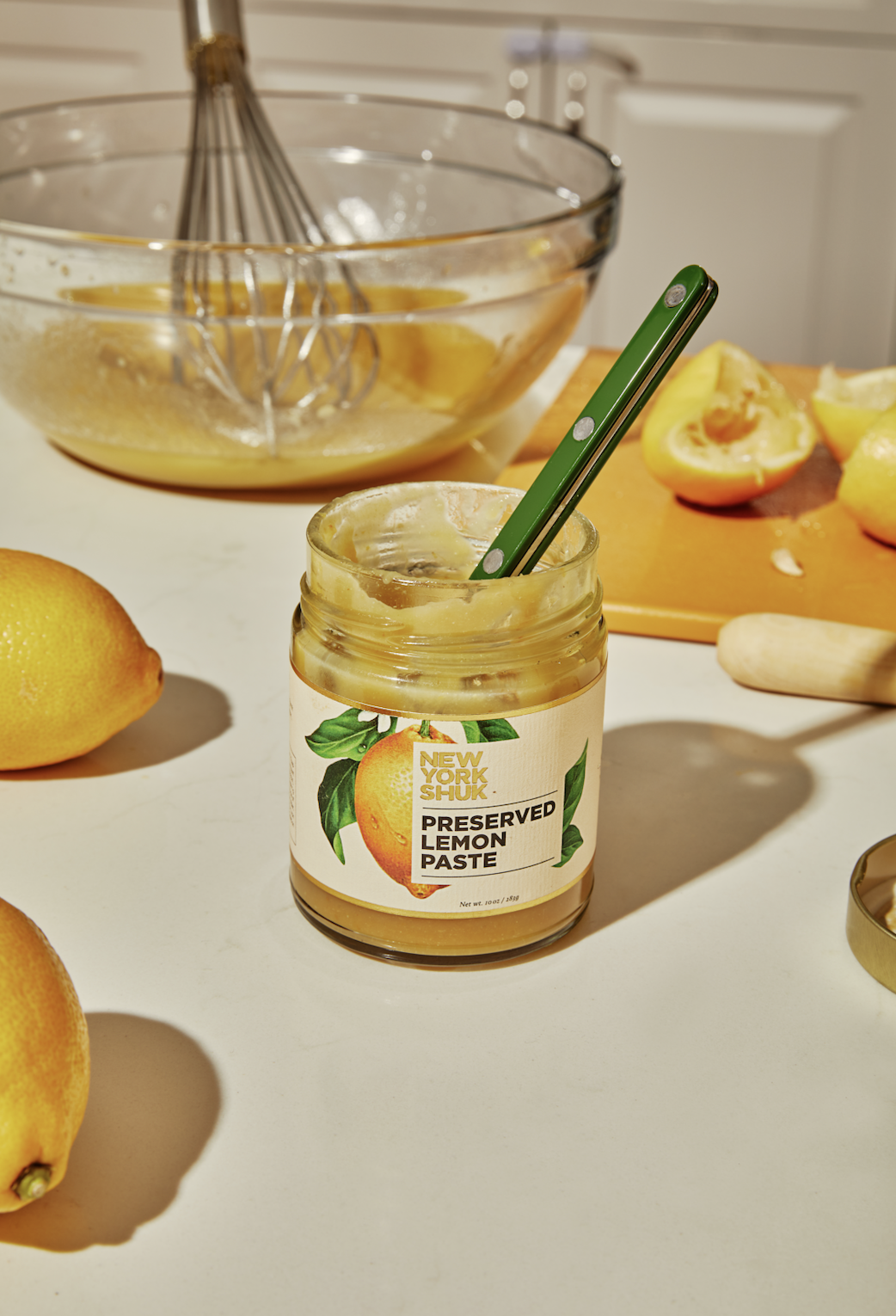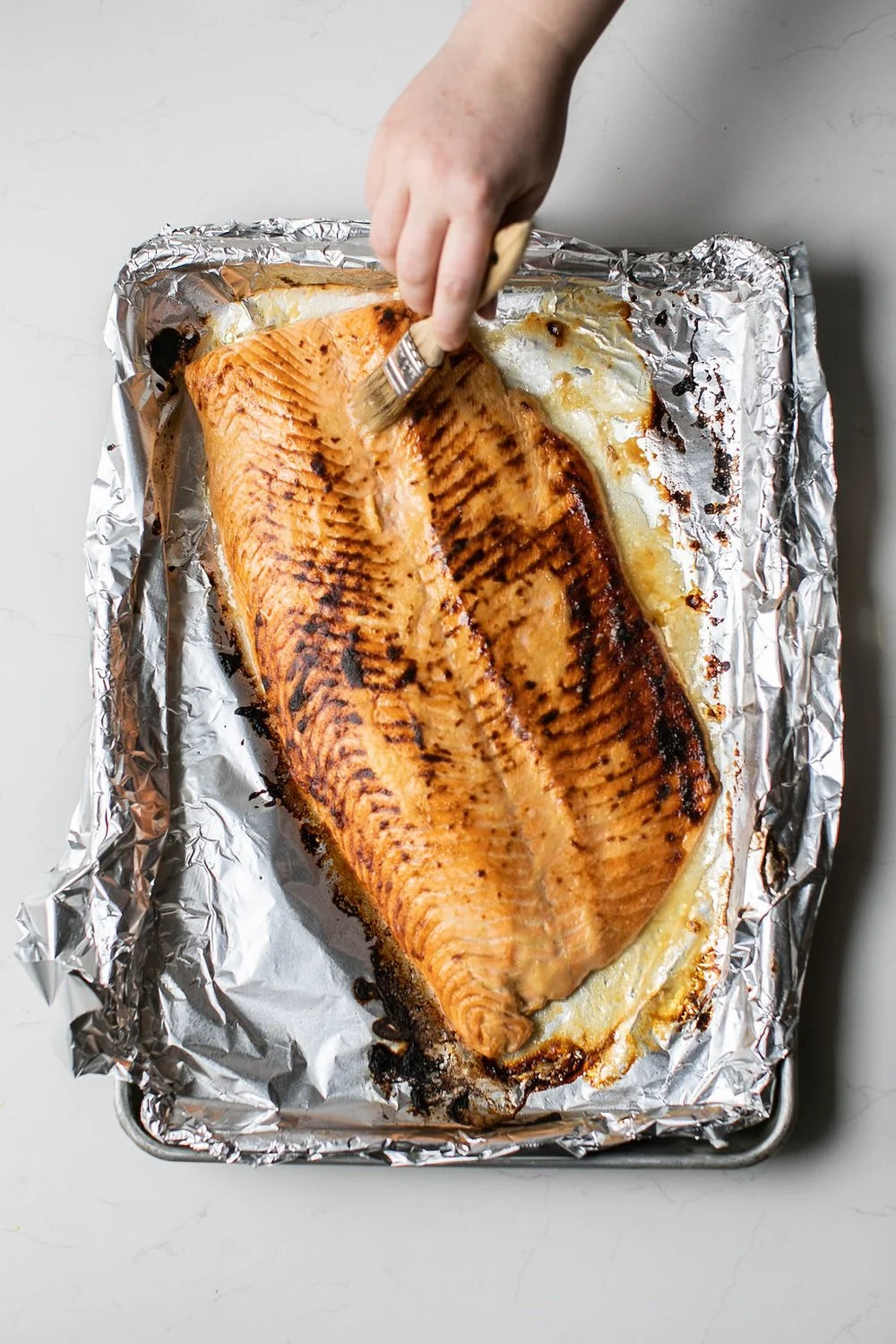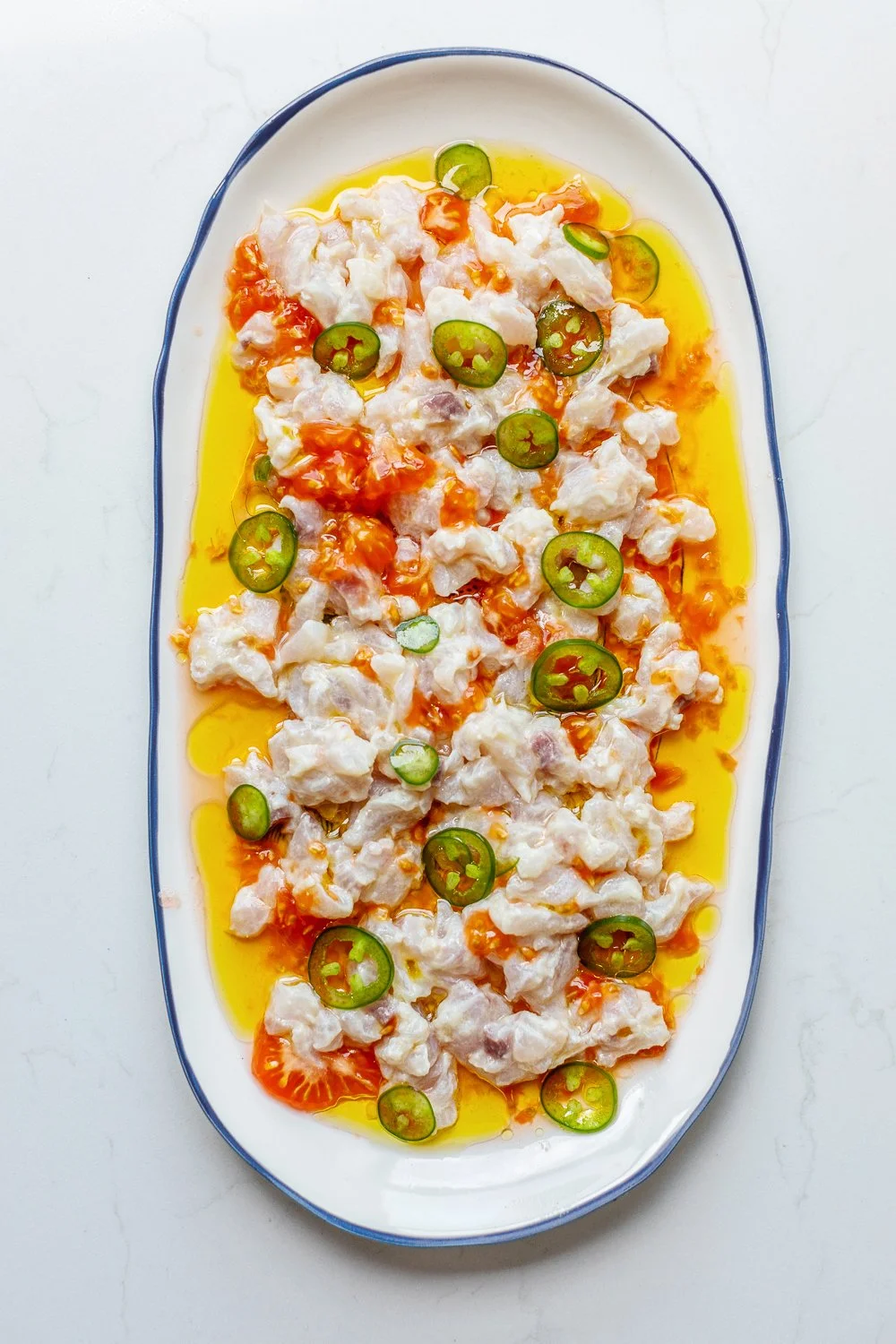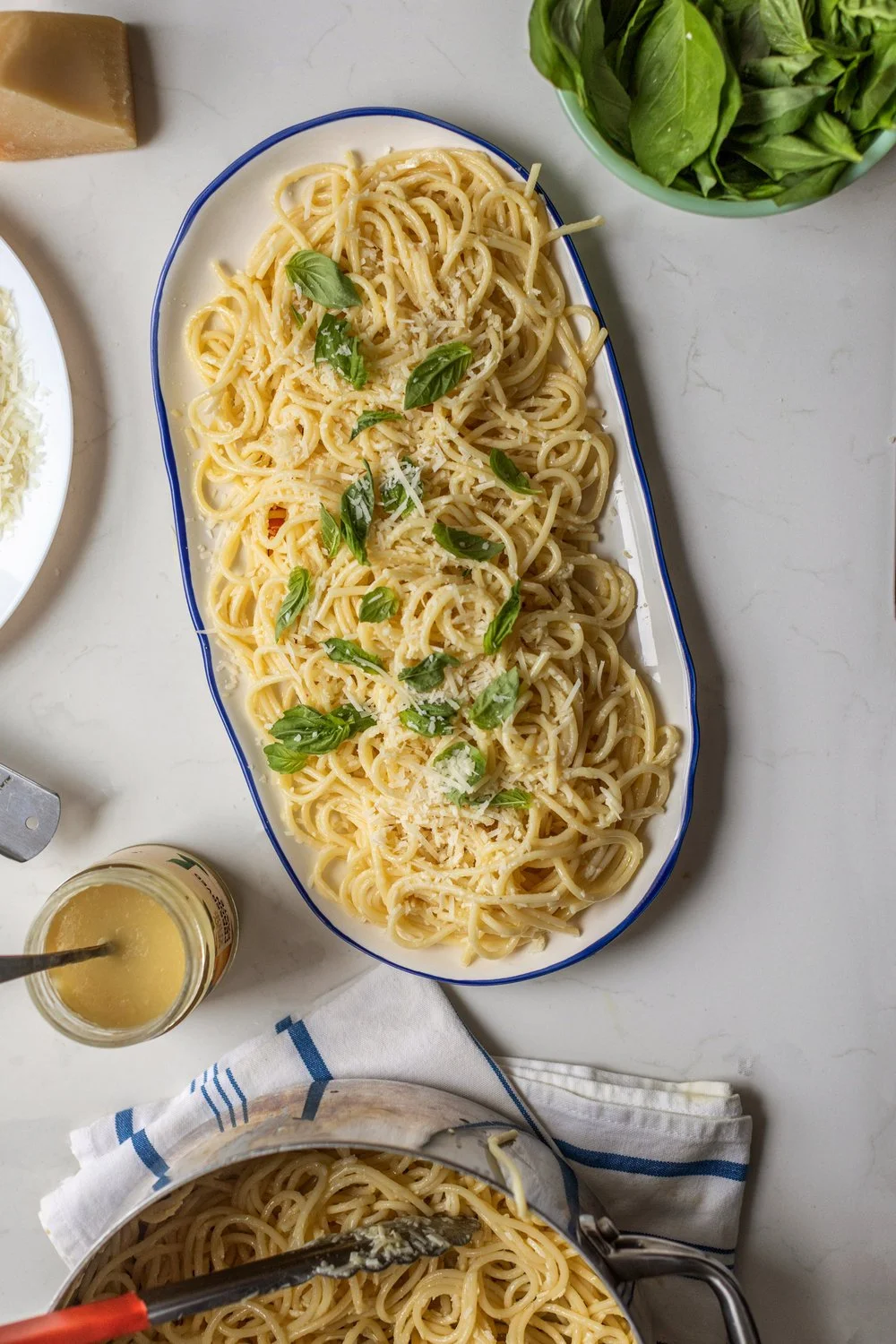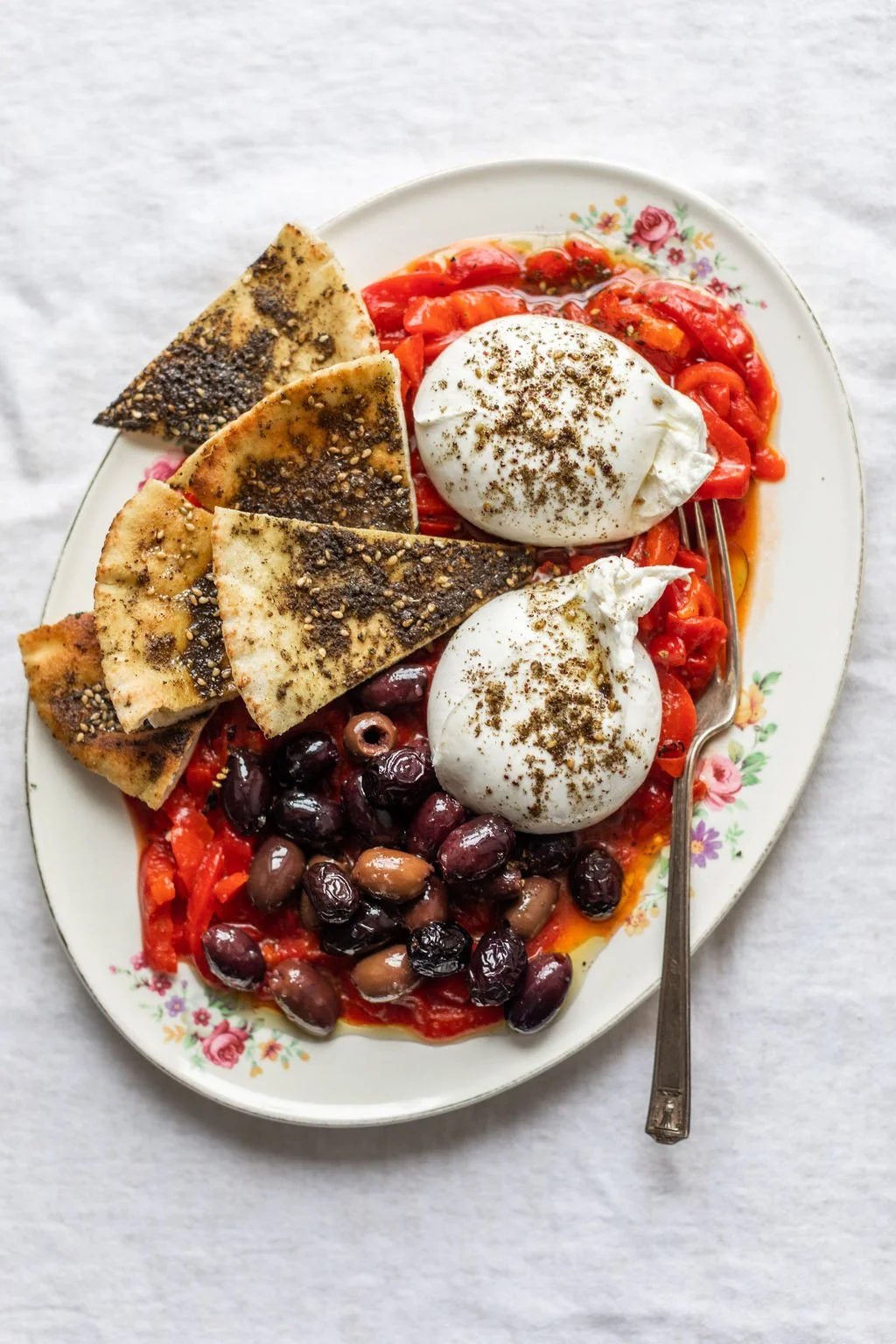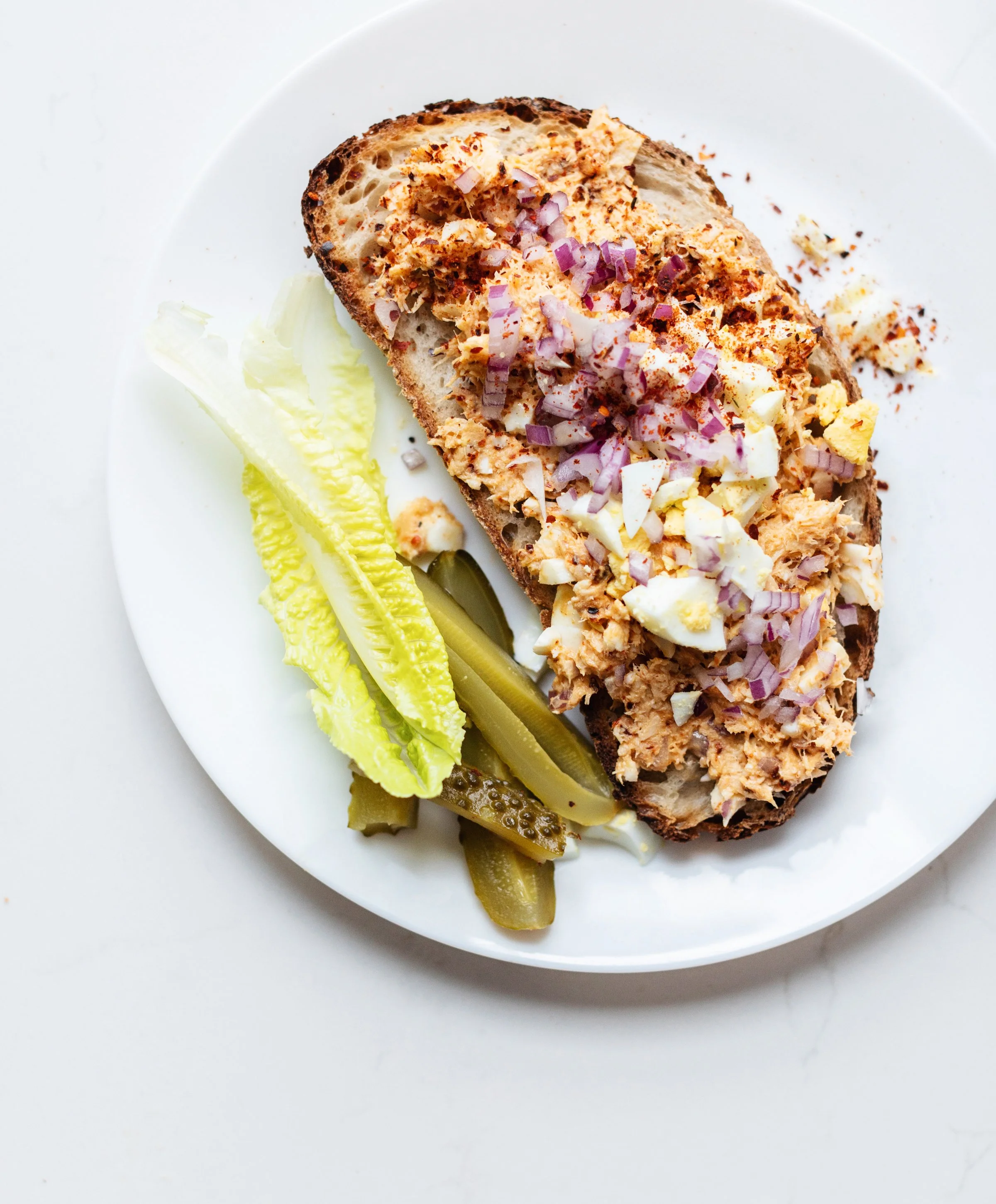PRESERVED LEMON PASTE // SUNSHINE IN A JAR
Preserved lemon paste is a power-packed weapon in our pantry-and it will soon be a heavy-hitter in yours too. Its deep citrus flavor and rich umami notes inject an irresistible complexity to any dish. Reach for our ready-to-use paste whenever you are looking to add a bright touch to you daily cooking.
What are Preserved Lemons?
Preserved lemons are lemons that have been packed in a jar with salt and lemon juice. They then undergo a natural fermentation transformation that deepens and complexifies their flavor in a way that is nothing short of magic. You know they are ready once the lemons completly break down in the process—the rind becomes super soft, rich and velvety.
From two simple ingredients and a bit of patience, you get a condiment that does everything fresh lemons can do, but with an added hit of indulgent, umami-rich flavor. As the iconic cookbook author, Paula Wolfert, wrote in her book The Food of Morocco, “The taste, texture, and aroma of preserved lemons are unique and cannot be duplicated…fresh lemons are never an adequate substitute.”
This culinary alchemy helps to explain why preserved lemons are one of the most beloved fermented pickles throughout North Africa, the Middle East, and the Indian subcontinent. It is also why the Michelin-starred chef, Mourad Lahlou, described preserved lemons as Morocco’s “national anthem of flavor” in his cookbook, Mourad: New Moroccan. “What soy sauce and fish sauce are to Asian cooking, preserved lemons are to Moroccan food,” he writes. “Wherever they are used, they add a particular kind of almost intoxicating intensity that’s unlike any other ingredient I know.”
“New York Shuk’s Preserved Lemon Paste is the umami condiment of my dreams”
—Departures Magazine
Preserved Lemons’ Origins
Preserved lemons date back to at least the 12th-century (and likely earlier than that), when a prominent Egyptian-Jewish physician named Ibn Jumay published a medical text called On Lemon, it’s Drinking and Use. The text explored lemons’ healthful and nourishing properties and included the first-known published recipe for preserved lemons. Jumay’s instructions, which called for splitting the lemons, packing them with a copious amount of salt, and letting them sit for weeks until they have fermented, is virtually identical to the process used to make preserved lemons today. By the 13th century, the practice of making preserved lemons had spread throughout the Middle East and North Africa. An Arabic cookbook called, The Link to the Beloved, which devoted an entire section to salted lemons, claimed that they were, “so well known, they need no description.”
Preserved Lemons Across The World
Traditional flavorings for preserved lemons range widely depending on where they are made. According to Lemon, A Global History by Toby Sonneman, “In India, preserved lemons are…strongly flavored with spices such as ginger, cardamom, and cayenne. Preserved lemons in Afghanistan are flavored with black cumin seeds, while in Morocco and other parts of North Africa spices are rarely added.” Some recipes include olive oil as both a flavoring and an additional preserving agent, while others stick to the citrus fruit and salt. No matter how and where they are prepared, however, preserved lemons serve the same purpose: to infuse dishes with an unforgettable briny punch and effervescent lemon flavor.
Growing up, Ron’s Moroccan family took advantage of the peak lemon season to make preserved lemons for the rest of the year, then added them to signature dishes like chicken with olives, and fish cooked with garlic and turmeric. Today, we carry on with those traditions, while also using preserved lemon paste as a “secret ingredient” that enhances everyday cooking.
“The taste, texture, and aroma of preserved lemons are unique and cannot be duplicated…fresh lemons are never an adequate substitute.”
— Paula Wolfert, Author of The Food of Morocco
Health Benefits of Preserved Lemon Paste
Fresh lemons contain numerous healthful properties, from an abundance of vitamin C (two tablespoons contains 20 percent of the recommended daily amount!), to antioxidants that help support immune functioning. Our preserved lemon paste retains these qualities. And since the paste includes the entire lemon - rind and flesh, as well as juice - it also contains additional antioxidant flavonoids that studies say can improve blood flow, help lower cholesterol, and suppress inflammation. Add on top of that the gut-healthy probiotics that come from the natural lacto-fermentation process, and our preserved lemon paste might just be the best tasting superfood imaginable.
BTS of lemon picking at Sespe Creek Farm (learn more about lemon sourcing here)


